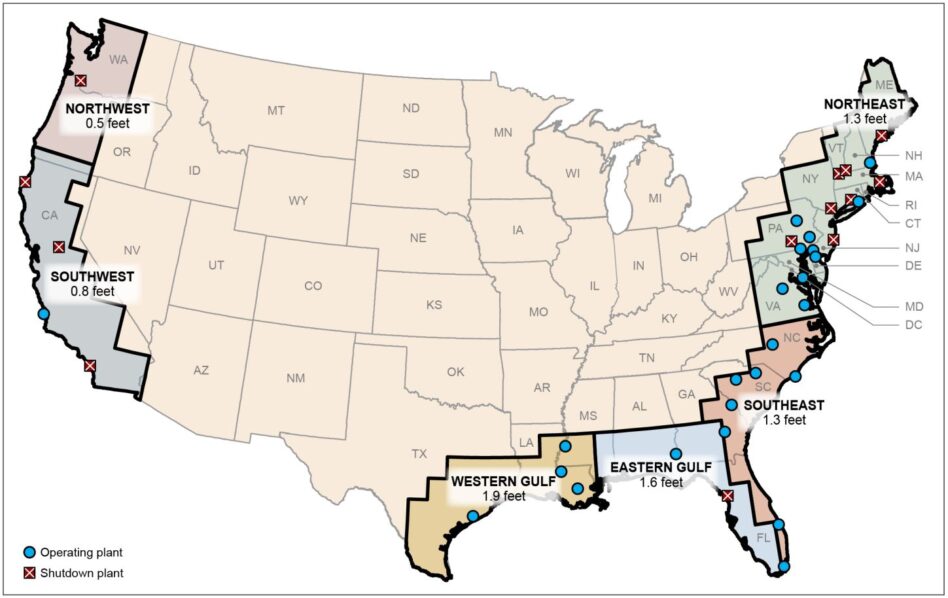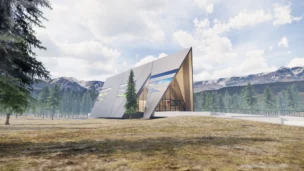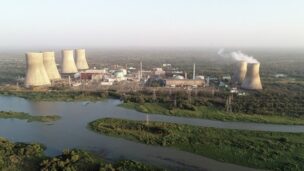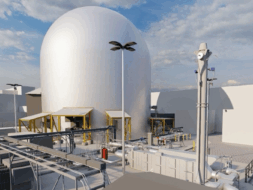A government watchdog is wagging a finger at the NRC for its backward-looking approach when it comes to preparing for climate change.
The Government Accountability Office (GAO) released a report yesterday that criticized the US nuclear regulator for how it assesses climate risk when licensing new plants and renewing old licenses. Instead of using projections for how nuclear reactor sites could be impacted by flooding, droughts, wildfires, and sea level rise, the commission uses historical data.
- GAO conducted its review of the NRC as part of its big-picture survey of the climate vulnerabilities of the great American energy infrastructure.
According to the report, 75 plants in the US—both operating and shuttered—are located in regions that are expected to experience extreme weather events more often.
That’s not so egregious. But the watchdog also pointed out that when the NRC renews licenses for reactors, it doesn’t reassess climate risk, meaning that the 49 nuclear plants operating under license renewals were approved based on decades-old environmental risk data.
“NRC has the opportunity to consider climate risks more fully and, in doing so, to better fulfill its mission to protect public health and safety,” the GAO wrote.
An action plan: The GAO made three recommendations to the NRC:
- Figure out whether the current licensing process does enough to mitigate climate concerns
- Map out a plan for fixing gaps in the process, and carry out that plan
- Pick out the climate change projection data that could be incorporated into the process
According to the GAO, the NRC is already working towards implementing these steps. In a response to the findings, Ray Furstenau, the NRC’s acting executive director for operations, wrote that the recs were “very broad,” but doable—even while he disagreed that the agency allows additional risk to sneak through its licensing processes today.
Since the agency’s mandate is to ensure safety, Furstenau wrote, “we cannot impose requirements that would increase energy resilience or require consideration of potential future climate impacts without a sufficient nuclear safety justification.”
Lead Reporter of Ignition





